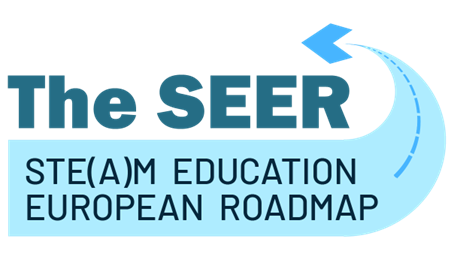Real-life Contexts Are Gaining Importance; Sustainability of Projects Needs Improvement
Within the EC-funded project “The Seer”, coordinated by the European Schoolnet, we did an extensive study of European STE(A)M projects, with a special focus on identifying trends and developments over recent years. A total of nearly 800 projects from the past two decades were analysed to evaluate the alignment of these trends across various target groups, such as students, teachers, and policymakers.

The study particularly revealed that interdisciplinary approaches with a focus on real-life contexts are gaining increasing importance. Challenges of the 21st century, such as digitization, sustainability, and environmental education projects, dominate the thematic focus of the examined STE(A)M projects. Special attention is also given to the development of 21st-century skills.
In the area of diversity, gender plays a significant role, while inclusion takes a more subordinate position. The majority of the analysed projects concentrate on the development of educational materials for secondary education.
However, the study also highlights weaknesses in the area of sustainability: a large portion of the project outcomes becomes unavailable after just a few years. Additionally, the discoverability of the project results is challenging, particularly if the project name is not known.
In summary the study showed, that EU-funded projects make a significant contribution to the educational landscape. However, there is a clear need for improvement concerning the visibility and long-term sustainability of the project results.
You can find a first version the results of this study in this report. Further information are available on the project’s webpage.


